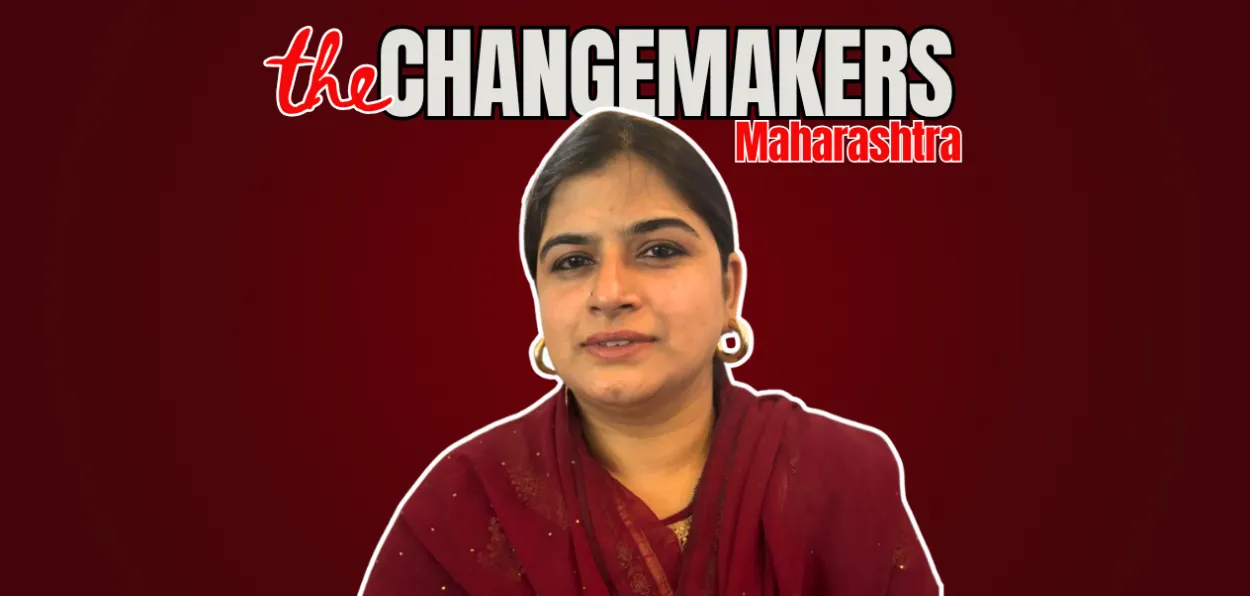
Bhakti Chalak/Pune
An incident that occurred outside the Kamaruddin Masjid in Pune, Maharashtra, inspired Farah Shaikh to initiate a powerful movement that has brought about a positive change in Muslim society.
One rainy day during Ramzan in 2019, Farah, her husband Anwar, and her daughter were drenched. They moved towards the mosque, thinking they would find shelter inside.
While Anwar first entered the mosque in a bit of a hurry, thinking that he would offer Asr namaz on time, Farah and his daughter followed him. Both were told they were not permitted inside, and it shocked them.
.jpg)
Farah Shaikh with her doctorate from the University of Sikkim
In that moment, Farah was hit with the realization of the unspoken exclusion of women in mosques. It troubled Farah with many questions, and the fire was enough to trigger a powerful movement for change.
She asked: Why are women barred from the house of Allah?
Supported by her husband, Anwar Shaikh, a partner in her quest for social and religious justice, a determined Farah embarked on a journey to challenge the norms of a majority of Indian mosques that do not permit women.
Farah and Anwar’s partnership embodies the spirit of a new generation. They took it upon themselves to reshape societal understanding.
.jpg)
Farah Shaikh distributing food and essentials among the needy during the COVID-19 lockdown
Farah comes from a middle-class family of Pune, Maharashtra, where she also manages a grocery store.
The couple studied the Quran and Hadith to find answers to the questions troubling them. Both revealed no explicit prohibition against women entering mosques, strengthening Farah's resolve to challenge the prevailing patriarchal interpretations.
.jpg) Farah faced resistance from religious institutions; her correspondence to the mosque committees on why women were denied entry inside remained unanswered. However, the indifference didn’t dampen Farah’s zeal.
Farah faced resistance from religious institutions; her correspondence to the mosque committees on why women were denied entry inside remained unanswered. However, the indifference didn’t dampen Farah’s zeal.
Her efforts culminated in the matter reaching the Supreme Court. Reflecting on that pivotal moment, Farah questioned, "Is the mosque not the house of Allah? Did Allah say that only men can come to the mosque, and women cannot enter His house?"
Ultimately, after years of advocacy, this changemaker's efforts led to a significant breakthrough.
The Muslim Personal Law Board acknowledged the right of Muslim women to enter mosques for prayers, paving the way for a more inclusive practice.Today, in Maharashtra, including the very mosque in Bopodi where Farah was barred, women have begun to exercise their right to worship freely.
In Mumbai alone, around 15 mosques, including the prominent Jama Masjid on Mohammad Ali Road, now welcome women.
Farah's pursuit of justice has not been without its challenges. She faced societal opposition. She says, "Initially, people threatened us, saying, 'Don't do this, you will sin.' However, we did not waver."
She recognized that her fight was not just about religious spaces but about the fundamental rights of women across all communities. As she emphasizes, "This issue is about women's rights. It is not just for one religion but gives direction to the rights of women of all castes and religions."
Her impactful journey and perspective have been documented in the book "Echoes of Equality: Farah Shaikh's Journey," highlighting her significant contributions to women's empowerment and social reform. A prestigious university in Delhi honuored her with a doctorate for her impactful social work.
Farah Shaikh's journey exemplifies the power of an individual's unwavering commitment to justice and equality. Supported by her husband, Anwar, emerged as a vital voice for progressive change, advocating for the rights and dignity of women in Maharashtra and beyond. Summing up her enduring mission, Farah states, "The Islamic religion has given many rights to women equal to men. Be it social, economic, or personal. Therefore, women should get these rights, and they should also be aware of these rights. That is why my fight is going on."
Farha and her Farha Charitable Trust are always at the forefront of Maharashtra’s social, educational, political, and religious conversations. Her work serves as an inspiration, demonstrating that through education, awareness, and dialogue, meaningful societal transformation is possible.
Farah Shaikh's journey exemplifies the power of an individual's unwavering commitment to justice and equality. Supported by her husband, Anwar, emerged as a vital voice for progressive change, advocating for the rights and dignity of women in Maharashtra and beyond. Summing up her enduring mission, Farah states, "The Islamic religion has given many rights to women equal to men. Be it social, economic, or personal. Therefore, women should get these rights, and they should also be aware of these rights. That is why my fight is going on."
.jpg) Farha Shaikh and her Husband, Anwar Shaikh, being interviewed for their work during the COVID-19 lockdown
Farha Shaikh and her Husband, Anwar Shaikh, being interviewed for their work during the COVID-19 lockdown
Farha and her Farha Charitable Trust are always at the forefront of Maharashtra’s social, educational, political, and religious conversations. Her work serves as an inspiration, demonstrating that through education, awareness, and dialogue, meaningful societal transformation is possible.
Farha and her Trust lead the charge on Maharashtra’s and India’s pressing issues, not just voicing opinions but actively fighting for change through legal and social means.
Whether it’s her Supreme Court battle for Waqf reforms or her inclusive disaster relief efforts—helping flood-affected communities of all faiths with rehabilitation—she is at the forefront.
ALSO READ: World keen to hear Dalai Lama's announcement on his heir
Where even prominent Muslim men hesitate to speak, Farha not only voices her views but takes to the streets to drive change. This fearless approach marks her as a true changemaker. For her unwavering commitment, Awaz The Voice extends heartfelt congratulations and wishes her continued success in creating a more equitable Maharashtra.
